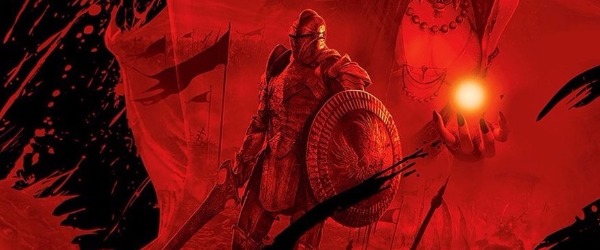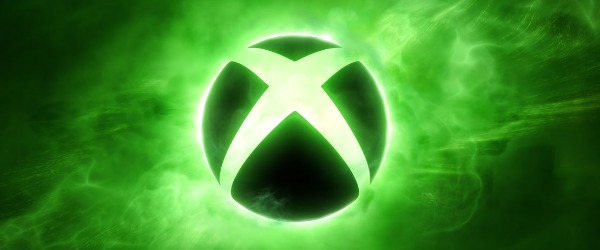
Greatest Video Game Composers: Frank Klepacki - Article
by Taneli Palola , posted on 09 June 2016 / 8,104 ViewsSometimes a video game composer's entire career can be defined by his or her work on a single franchise, regardless of how many other soundtracks they may have created over the course of their career. In many ways, this is exactly what happened to the person we're talking about today - Frank Klepacki. He is one of the most prominent and prolific western video game composers of the past 25 years, having worked in the industry since he was 17 years old.
Klepacki began his career as a video game composer in 1990, after he applied for a job as a game tester at Westwood Studios. He also submitted a demo tape to the company's audio director, which got him hired as an in-house composer. He was then immediately given his first assignment – to create the soundtrack to a game called DragonStrike for the NES.
He followed this up with the soundtrack to one of Westwood Studios' highest profile releases - Eye of the Beholder II: The Legend of Darkmoon. The first two Eye of the Beholder games are often considered some of the best PC RPGs of the early 90s, and together with games like Dungeon Master have gone on to influence countless other RPG series, including the likes of Legend of Grimrock.
By 1992 Klepacki had already established himself as a very reliable hand at composing music for Westwood's games. Indeed he found himself signed up to compose music for four different games, all of which came out in 1992.
On two of these games - Dune II and Dungeons & Dragons: Warriors of the Eternal Sun - he collaborated with two other composers on the soundtracks, but he composed the soundtracks for the other two games on his own. These titles were Order of the Griffon and The Legend of Kyrandia – Book One. Klepacki would also later compose the music for Book Two: The Hand of Fate and Book Three: Malcolm's Revenge in 1993 and 1994, respectively.
In 1993 Klepacki composed the music for Lands of Lore: The Throne of Chaos, then in 1994 he worked on two more Westwood Studios games. The first of these was a little-known SNES title called Young Merlin, but the second was a game that quite possibly introduced many of you to Klepacki's work - the SNES version of The Lion King.
For The Lion King Klepacki reworked the original film's score to great effect with the SNES sound chip. His work on the game was even praised by Hans Zimmer. After The Lion King and the third game in The Legend of Kyrandia series Klepacki was involved with discussions on Westwood Studios' next title, a game which would become the developer's biggest success yet – Command & Conquer.
The music in the first Command & Conquer had a strong industrial feel to it, in addition to drawing inspiration from orchestral, hip hop, and heavy metal genres of music. The game would become a massive success upon release and in the process Klepacki gained a lot of recognition for his music. It also, of course, spawned one of the most successful strategy game series of all time. This first soundtrack, however, is one of my favourites from Klepacki and has stood the test of time remarkably well.
Following the game's success Westwood immediately set about creating an expansion and began production on a sequel. The former was Command & Conquer: Covert Operations, an expansion pack that was released in 1996, for which Klepacki composed seven new tracks.
While he was working on the music for Covert Operations, Klepacki happened to create a piece of music called Hell March. Upon hearing the song the company's president, Brett Sperry, insisted that it be used as the theme song for Command & Conquer: Red Alert. The soundtrack to the game would become one of Klepacki's most recognisable works and went on to receive numerous accolades from press, being voted best soundtrack of the year by various publications.
Afterwards Klepacki composed additional music to the two expansion packs for Red Alert - Counterstrike and Aftermath - both of which released in 1997. That same year he also composed the music for two other Westwood Studios titles. The first was Lands of Lore: Guardians of Destiny and the second was Blade Runner, an adventure game set in the same world as the film directed by Ridley Scott.
For Blade Runner Westwood was unable to acquire the rights to the music from the film, so the firm brought Klepacki in to compose new music for the game. In addition he also remade some of the film's songs by ear, as he wasn't granted access the original master recordings.
1998 was yet another busy year for Klepacki; he not only composed the music for Command & Conquer: Sole Survivor, which was a spin-off of the first C&C game, but he also created the soundtrack to Dune 2000, a partial remake of Dune II. By this point he was basically composing the music for every single Westwood Studios game, and doing it all by himself for the most part.
In 1999 he worked on the music for two games, and both are among the few examples of him splitting composing duties with other people. The first of these was Lands of Lore III, which he worked on with David Arkenstone. The second, and by far the bigger release, was Command & Conquer: Tiberian Sun, for which Klepacki collaborated with Jarrid Mendelson. The soundtrack had a much quieter, more somber tone compared to previous games in the series.
By the turn of the millennium Klepacki had established himself as one of the most prolific western video game composers working in the industry. His style of industrial rock and metal mixed with various different genres of music set him apart from most other composers and gave his work its own unique identity.
In 2000 he worked on three different Westwood projects. An action RPG called Nox, which while largely forgotten today was fairly well received at the time; the expansion to Tiberian Sun, called Firestorm; and most notably Command & Conquer: Red Alert 2, which is often seen as one of the series' high points. It also contains one of Klepacki's best scores, with a strong metal influence and an overall faster pace compared to the Tiberian Sun soundtrack.
The following year began with a game called Pirates: The Legend of Black Cat, a mostly forgotten action-adventure title for the PS2 and Xbox. Klepacki then worked on Emperor: Battle for Dune, composing roughly a third of the soundtrack. Finally, he crafted yet another solo score for Red Alert 2: Yuri's Revenge.
2002 would bring about a rather significant change for Klepacki. The first release he worked on that year was Command & Conquer: Renegade, a shooter set during the events of the first Command & Conquer. After that he created some of the music for the MMORPG Earth & Beyond. This would turn out to be the last game Westwood Studios ever developed - the studio was closed soon after on January 29th, 2003, by its then-owner EA.
As a result of the studio's closure and the last former Westwood employee leaving EA very soon afterwards, Klepacki ended up taking a rather long hiatus from composing video game music. He did contact EA about composing the music for Command & Conquer: Generals, but he wasn't chosen for the job. Between 2002 and 2006 Klepacki mostly worked on his own solo work, creating several albums during those years.
Klepacki returned to the video game industry in 2004 when he joined Petroglyph Games as its full-time audio director. The studio was made up of many former Westwood Studios employees who had left EA in 2003. Klepacki was thereafter in charge of composing music for all of the developer's future titles.
The first of these was an RTS set in the Star Wars universe, called Star Wars: Empire at War, which was released in 2006. For this game Klepacki adopted a very different style of music from his usual work, using sounds that were very similar in style to the music found in the Star Wars films, which itself was composed by John Williams. He even made use of many of the original sound effects found in the films. Klepacki called his work on this particular game the peak of his career up to that point.
Petroglyph's next game was Universe at War: Earth Assault, which was released in 2007. It was intended as the first entry in a series, but those plans were scrapped following the game's lukewarm reception. Still, Klepacki's music was once again excellent, and it saw him return back to his heavier, more industrial style of music, making it more reminiscent of the Command & Conquer soundtracks.
Speaking of which, in 2008 Klepacki made a return to the C&C series, composing some of the music for Red Alert 3, as well as for the game's expansion pack - Uprising - the following year. This would mark the last time to-date that Klepacki would compose the music for a C&C game, and considering the state the series is in currently it's quite possible that this will remain the case for good.
Klepacki spent the next few years composing music for several smaller Petroglyph titles. These included Panzer General: Allied Assault in 2009, Guardians of Graxia in 2010, Mytheon in 2011, and Battle for Graxia in 2012. He was also contracted to create the soundtrack for a MOBA video game called End of Nations, but the game was presumably been cancelled sometime between 2013 and 2014.
In 2015 Klepacki returned to the RTS genre, composing the score for a game titled Grey Goo, which is heavily inspired by older Command Conquer titles. The game's soundtrack mixes orchestral music with Klepacki's trademark rock and metal style to great effect.
Klepacki latest work was for yet another old school style RTS title called 8-Bit Armies, which was released in April of this year. Klepacki would employ a style very similar to his classic Command & Conquer soundtracks when composing the music for the game and the result is an excellent, if fairly short soundtrack.
Frank Klepacki's career as a video game composer has largely been defined by his work on the Command & Conquer series, but his work outside the series has often been just as impressive. Over the last 25 years Klepacki has developed a style and sound that is very much his own and he is responsible for some of the most memorable pieces of video game music since the early 90s.
Many of you probably have your own favourites among Klepacki's works, so feel free to share them below in the comments. As always, thanks for reading.
More Articles
Always loved Frank's music. My fave few tunes of his would have to be Full stop, Hellmarch series, Act on Instinct and Perseverance. The majority of his tunes were really something to the RTS genre, gave those games he recorded for that bit of a kick to them as well as a thrill. He's probably the one RTS composer out there that I like the most, save for Starcraft composers.
Also 8-Bit armies is a nice little gem that harks back to the old C&C days and I'd say it's totally worth buying for it;s cheap price since it comes with a 25 mission campaign, multiplayer and more updates are just coming along from nowhere, a really nice turn from what Petroglyph were doing with Grey Goo.
I was familiar with his name and Hell March (several versions, I think), but I wasn't familiar with his other work. Turns out, it's great! I have no idea why I didn't know about his other work before.
I get paid 92 dollar every hour for work at home oon my PC. I never thought I'd be able to do it but my lovely girl friend GN is earning 21k/ monthly by doing this job and she show me what he do. See here whatt i do.
SEE MORE-----> CashPay60.TK
Although good I don't find him the best in the business. He have the tendency to go George Lucas on his work and it just put blemishes on his repertoire if you ask me.
Koji Kondo, Nobuo Uematsu and Jeremy Soule are true masters in their field.






















 Essay Pro
Essay Pro